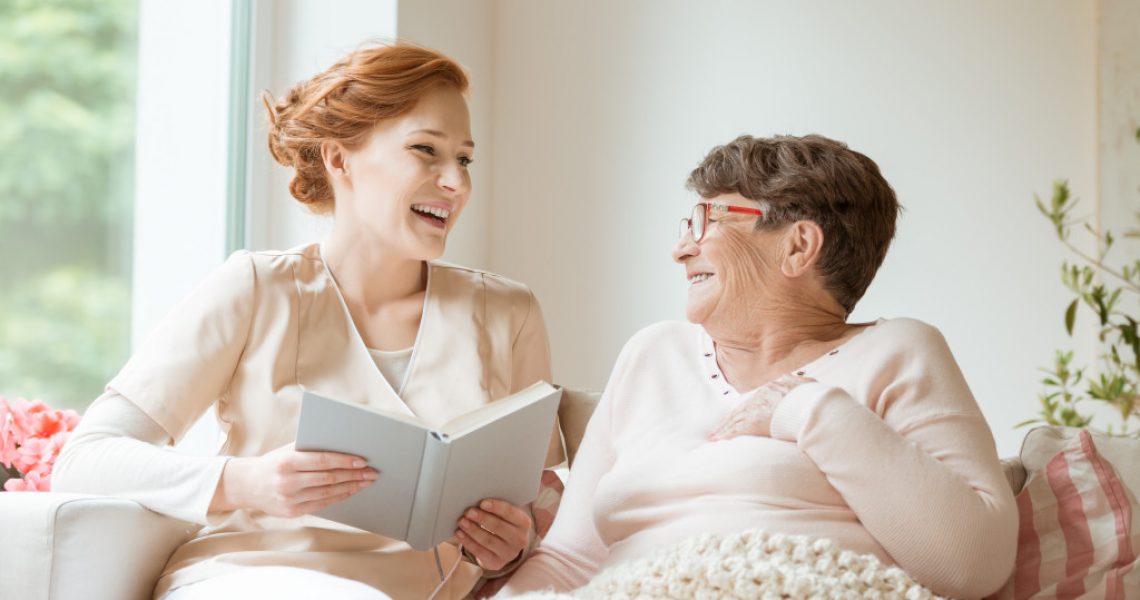About 46 million individuals are over the age of 65 in the United States, and this number is increasing every year. With aging comes a number of inevitable changes in our bodies, minds, and circumstances. That said, it affects the way we look, think, and function. As we get older, we also become more susceptible to both physical and mental illnesses.
Mental illnesses are more likely to impair certain functions in older adults. Additionally, mental conditions that are not treated early on can result in other mental illnesses in the future. This means that the elderly require more mental health care than other individuals in our families. Here are some simple ways you can take care of their mental health.
Talk to Them
As human beings, we are very social creatures. Since the day we are born, we require care and attention from others. This is the same when we become older. Elderly care is simpler than you think. Most of the older generation only demand attention and conversation from us. Keep them company for just an hour every day. Talk to them and ask for their stories.
Conversations with the elderly are the most straightforward way we can take care of them. Studies have shown that more people aged 50 and above are becoming isolated from the world. Those who don’t have peers or family members who spend time with them are more vulnerable to mental illness. It should be on our list of priorities to spend time with our elders because this gives them the attention they need to carry on with daily life.
Those who reach the crucial age of 70 years and above require more time with others than ever. So remember to visit them as much as you can. A local hospice can also be an excellent place for them to spend their time when you’re not around.
Support Groups
Support groups play a significant role in your elderly’s life. They can address certain problems that your older family members might have with people who can understand and relate to them. Being part of the younger generation means that there are certain experiences we have not experienced yet. This makes it hard for the older generations to feel like they belong in our household. Support groups can help them find a sense of belongingness. This strengthens their will and resilience against mental illnesses.
Additionally, if you find yourself busy with your own life, you can ask the support group to fill in for you instead. This can count as their daily social activity, and it can certainly mean the world to them.

Mental Activities
Social care shouldn’t be the only thing you prioritize on. Many of the elderly require mental stimulation to keep their mind sharp and alert. An alert mind is one way a person can keep their mind away from mental illnesses. It is also a proactive way to keep one’s mind healthy.
There are many mental activities you can give to the older individuals in your family. Some of them only need to be printed out, such as crossword puzzles. Other activities might require your presence, such as helping them make their own mandalas. Be there for them during these activities because they can be a social activity as well.
These mental activities can certainly keep your elderly’s mind active. It also makes them feel more in control of their lives. These activities don’t have to be over-complicated. So, do your research and choose which activity is best for them.
Regular Visits to the Psychologist
Psychologists play a crucial role in taking care of seniors. They can determine mental deterioration as well as illnesses that might pop up in the future. These specialists can conduct various tests to determine the mental state of your loved ones. By visiting a psychologist, you can proactively prepare for any mental illnesses and other related issues that your elderly might have in the future. Additionally, therapy can also help solve any illnesses they might have right now. So, visit a psychologist every three to four months.
Taking Care of Yourself
You must take care of yourself as well. Make sure that you’re not overly dedicating your life to the older generations of your family. They’d certainly feel bad if you do. Take time for yourself and develop your own personal relationships because this will also keep you away from mental illness. Remember that you can’t give from an empty cup.
Here are simple ways you can take care of the mental health of the elderly in your household. Time and dedication are important for this, so make sure you keep yourself organized with your tasks and jobs every day. By being organized, you can learn to take care of yourself and others.

